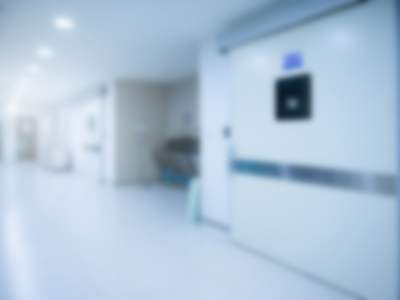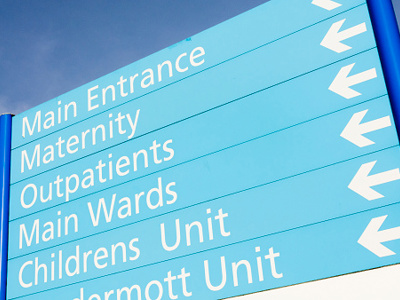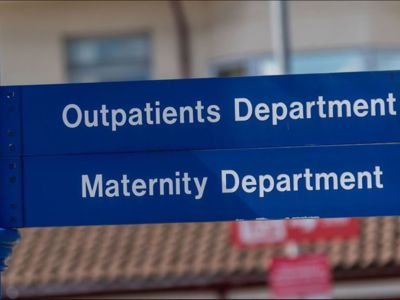Birth Negligence Claims: Trusted Legal Advice
If you or your child have suffered from a traumatic birth injury due to medical negligence, you may be able to secure compensation with a birth injury claim. Our specialist lawyers are here to help.
What is a birth injury claim?
Doctors and midwives have a duty of care to you and your baby. A birth injury claim can help you secure compensation if you or your child have suffered from an injury before, during or after childbirth as a result of medical negligence.
If the medical professionals that helped deliver your baby failed to meet the standards to protect you both, then you may be able to claim for negligence and receive birth injury compensation.
No child or parent should suffer from medical negligence during childbirth. The effects can be devastating and life-altering. Sadly, mistakes can happen that may result in birth injuries. Our birth injury solicitors can help support you and find out if you have a claim.
In this section
Get help today
Get in touch and we'll call you back
See how we helped others

£290,000 settlement for mother denied a caesarean section for birth of first child
A woman who was denied a caesarean section delivery despite her many pleas in light of a painful condition has settled a claim for £290,000 with East Suffolk and North Essex NHS Foundation Trust (formerly Colchester Hospital University Foundation Trust).

Five-figure settlement secured after baby developed Erb’s Palsy and permanent facial scarring at birth
A mother and her son have received a settlement from Ashford and St Peter’s Hospitals NHS Foundation Trust after he suffered permanent facial scarring and Erb’s Palsy (paralysis of the arm) following a traumatic forceps delivery.

Six-figure settlement reached for woman who suffered a ruptured bowel following C-section
A woman, who we have called Nina, has received £175,000 in compensation in a legal claim against Blackpool Teaching Hospitals NHS Foundation Trust after they failed to diagnose and treat her bowel obstruction.
Types of birth injuries that can happen to babies
Birth injuries can vary from mild and short-term, to serious long-term complications. No matter the severity, we understand that birth injuries can be incredibly distressing for parents and their children.
Cerebral palsy is a type of brain injury that can occur before, during or after birth. It affects muscle movement and motor skills, which can make coordination and balance more difficult.
Sometimes, cerebral palsy can be unavoidable due to the brain not developing normally while growing in the womb. However, it can also be caused by brain damage during or after birth. This can be due to:
- Asphyxiation – the brain temporarily not getting enough oxygen
- Serious head injury
- Brain infection – such as meningitis
- Low blood sugar levels
Erb’s Palsy is a type of brachial plexus palsy which can occur as a result of a difficult delivery. It can affect the nerves between the baby’s neck and arm, causing weakness or paralysis of the arm muscles.
Erb’s Palsy can be caused by complications during birth, including where the baby’s head or arm has been pulled or handled with force.
Recovery can vary, though up to 80 to 90 per cent of children can recover completely with physical therapy.
However, you may still make a claim for an Erb’s Palsy birth injury if the doctor or midwife provided negligent care.
A neonatal death is when a baby dies within 28 days after birth. If a baby dies after 24 weeks of pregnancy, before they are born, the delivery is considered a stillbirth.
While these deaths can happen in healthy babies for unknown causes, some stillbirths or neonatal deaths are caused by:
- Bleeding before or during labour
- Pre-eclampsia
- Infection
- Placental abruption
- Umbilical cord problems
Find out more about making neonatal and stillbirth compensation claims
Hypoxic-ischemic encephalopathy (HIE) is a form of brain damage caused by the brain receiving a lack of oxygen before or immediately after delivery. HIE affects the central nervous system and may cause neurological or developmental issues.
The effects of HIE can vary from mild to severe and can lead to:
- Learning disabilities
- Epilepsy and seizures
- Cerebral palsy
If your baby has suffered from HIE as a result of medical negligence, you may be able to make a birth injury claim.
Find out more about making hypoxic-ischaemic encephalopathy compensation claims.
Types of birth injuries that can happen to mothers
Sometimes, mothers also suffer from birth injuries during delivery or pregnancy. If you feel you have experienced medical negligence during childbirth, speak to our birth injury solicitors to find out how we could help.
Perineal or vaginal tears can occur naturally during childbirth. According to research by the Royal College of Gynaecologists and Obstetricians (RCOG), around six in every 100 women giving birth for the first time experience a severe tear. The rate among women who already have children is lower.
However, if you have experienced a perineal tear, but the injury was missed, misdiagnosed or treated incorrectly, it could be an instance of negligence.
Pre-eclampsia can affect some women during pregnancy, or shortly after the baby is born.
Symptoms can include:
- Severe headaches
- Blurred vision
- Pain below the ribs
- Vomiting
- Sudden swelling, particularly of the face, hands or feet
Symptoms may be mild, but if left untreated or unmonitored, pre-eclampsia can lead to serious risks for the mother and baby. Medical professionals are still unclear about the exact cause of pre-eclampsia. It’s believed to be an issue with the placenta.
Examples of medical negligence in treating pre-eclampsia may include:
- Delayed diagnosis
- Misdiagnosis
- Delays in or incorrect treatment
If you think this could be the case for your birth experience, you may be able to claim for birth injury compensation.
While this is very rare, if a mother dies during or soon after childbirth, it can be considered a maternal or wrongful death.
In the UK, maternal death occurs in only 10 out of every 100,000 women. Research has found that leading causes include cardiovascular diseases and mental health.
Whether it’s before or after childbirth, if a mother has not received the appropriate support, treatment and standard of care, it may be a case of medical negligence.
Find out more about medical negligence and women’s health claims.
There are two main types of wrongful birth claims:
- Failure to warn of life-altering disabilities – The parents were not informed their child would be born with a disability. If they had known, they may have terminated the pregnancy.
- Failed sterilisation or vasectomy – The medical procedure was unsuccessful, resulting in an unplanned pregnancy.
Get help today
Get in touch and we'll call you back
What medical negligence can cause birth injuries?
Medical negligence can affect both babies and mothers during childbirth. If you make a birth injury claim, we’ll listen to what happened to you and find out if your medical providers breached their duty of care.
This could include:
- Avoidable injuries, such as nerve damage or injuries during a vacuum, forceps or caesarean-section delivery
- Delayed birth
- Medication errors
- Mistakes when administering anaesthetic
- Genetic misdiagnosis and failure to spot dangerous medical issues
A birth injury does not occur only during labour and the delivery. It can also occur during the pregnancy which if not identified can lead to a wrongful birth, and during the postnatal period if you do not receive adequate treatment after childbirth, leading to further complications.
If you or your baby have been affected by a negligent birth injury, you could be entitled to birth injury compensation.
As birth injury lawyers, it’s our role to find out if your medical provider was negligent. If so, we could help you secure the support you need to recover and care for your family. Call us today on 020 7650 1200 or fill in our short form and we'll get in touch.
Birth injury claims FAQs
About 30,000 women experience a traumatic birth in the UK each year, including physical and emotional damage. Some of these deliveries may include birth injuries. While injuries can occur naturally or due to birth complications, some may also have been caused by medical negligence.
A mother can bring a birth injury claim three years from the date of the delivery or from the date she realised that her birth injury was caused by negligent care. If you are bringing a claim on behalf of your child, the three-year time limit begins to run from when your child turns 18 and ends when they turn 21.
If your child does not have mental capacity, there is no time limit to make a claim. If your child has passed away due to stillbirth or neonatal death, you have three years from the date of death to make a claim.
You may be eligible to make a claim for birth injury compensation for your experience during pregnancy or childbirth if you or your baby were harmed as a result of medical negligence. This may include:
- Injuries to the mother
- Injuries to the baby
- Wrongful death
- Wrongful birth
- Failure to diagnose serious conditions
- Traumatic births
Speak with our experienced birth injury claims solicitors for support today. We’ll listen to what happened and find out if you could be eligible for compensation.
See how we helped others

£290,000 settlement for mother denied a caesarean section for birth of first child
A woman who was denied a caesarean section delivery despite her many pleas in light of a painful condition has settled a claim for £290,000 with East Suffolk and North Essex NHS Foundation Trust (formerly Colchester Hospital University Foundation Trust).

Five-figure settlement secured after baby developed Erb’s Palsy and permanent facial scarring at birth
A mother and her son have received a settlement from Ashford and St Peter’s Hospitals NHS Foundation Trust after he suffered permanent facial scarring and Erb’s Palsy (paralysis of the arm) following a traumatic forceps delivery.

Six-figure settlement reached for woman who suffered a ruptured bowel following C-section
A woman, who we have called Nina, has received £175,000 in compensation in a legal claim against Blackpool Teaching Hospitals NHS Foundation Trust after they failed to diagnose and treat her bowel obstruction.

